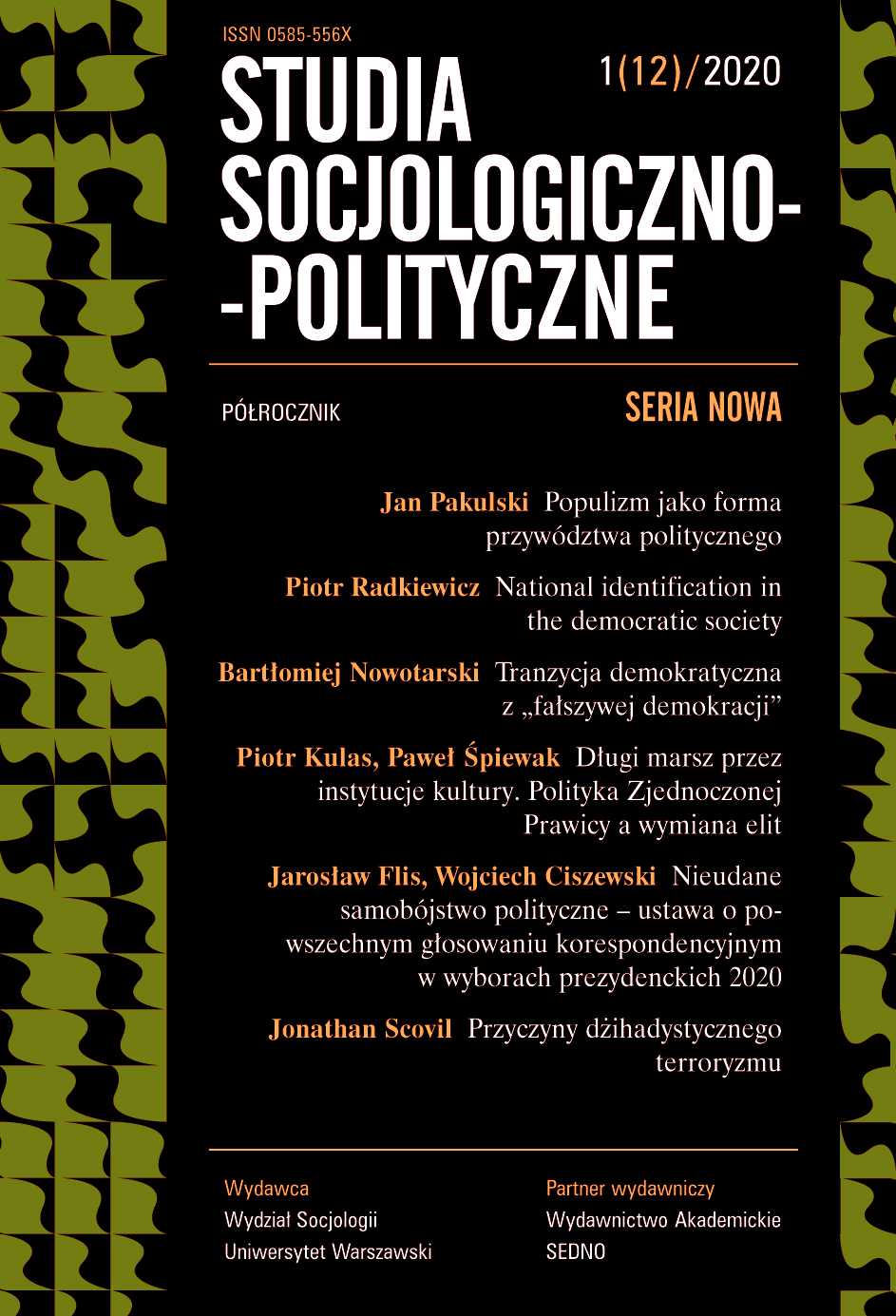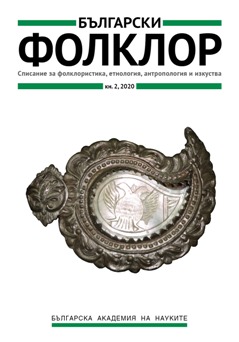
Populizm jako forma przywództwa politycznego: trzy tradycje teoretyczne i perspektywy badawcze
In a contemporary political sociology, experiencing a renaissance in political leadership studies, the populism – defined as a specific type of anti-establishment leadership – is quite well known not only from current „rises”, but also from former cyclic „tidal waves”. Even if there are visible parallels to former waves of populist politics, few socio-political analyses of the current „third wave” sweeping across Europe and the US benefit from the theoretical body of researches of previous waves. The current approach focuses on a shallow theoretical-historical approach to populism as a sui generis novum, as a critical backlash to contemporary development trends (ie. globalism, centralized government, neo-liberal politics, etc.). Thus this paper aims at reminding three important analyses relating to three consecutive waves of populism. All three point at populism as a manifestation of democratic trends and focus attention on leadership groups. Alexis de Tocqueville viewed populist campaigns of Louis Napoleon in France as manifestations of a „despotic democracy”. Max Weber judged European populisms he witnessed as manifestations of a „plebiscitary democracy”. Contemporary neo-elitists focus their attention both on leaders and on the structure of leadership groups as well as on relations between leaders and their „electorate”. Such leadership focused perspective is a necessary addendum to the research on contemporary populism.
More...




